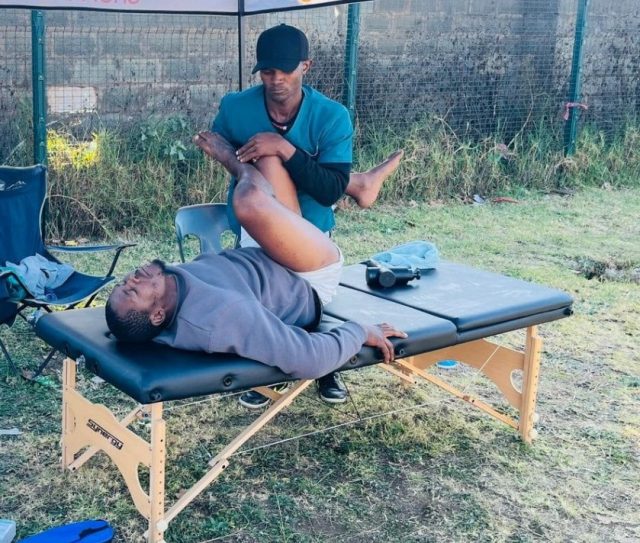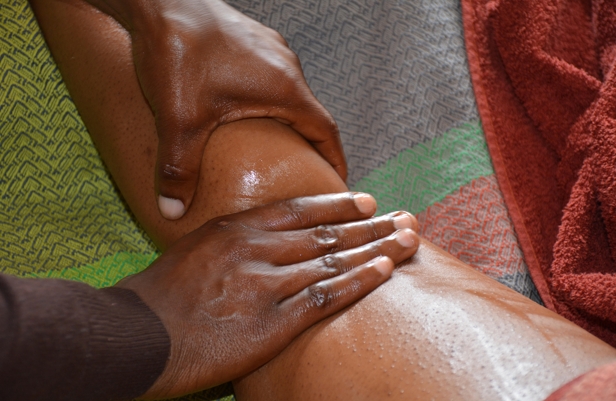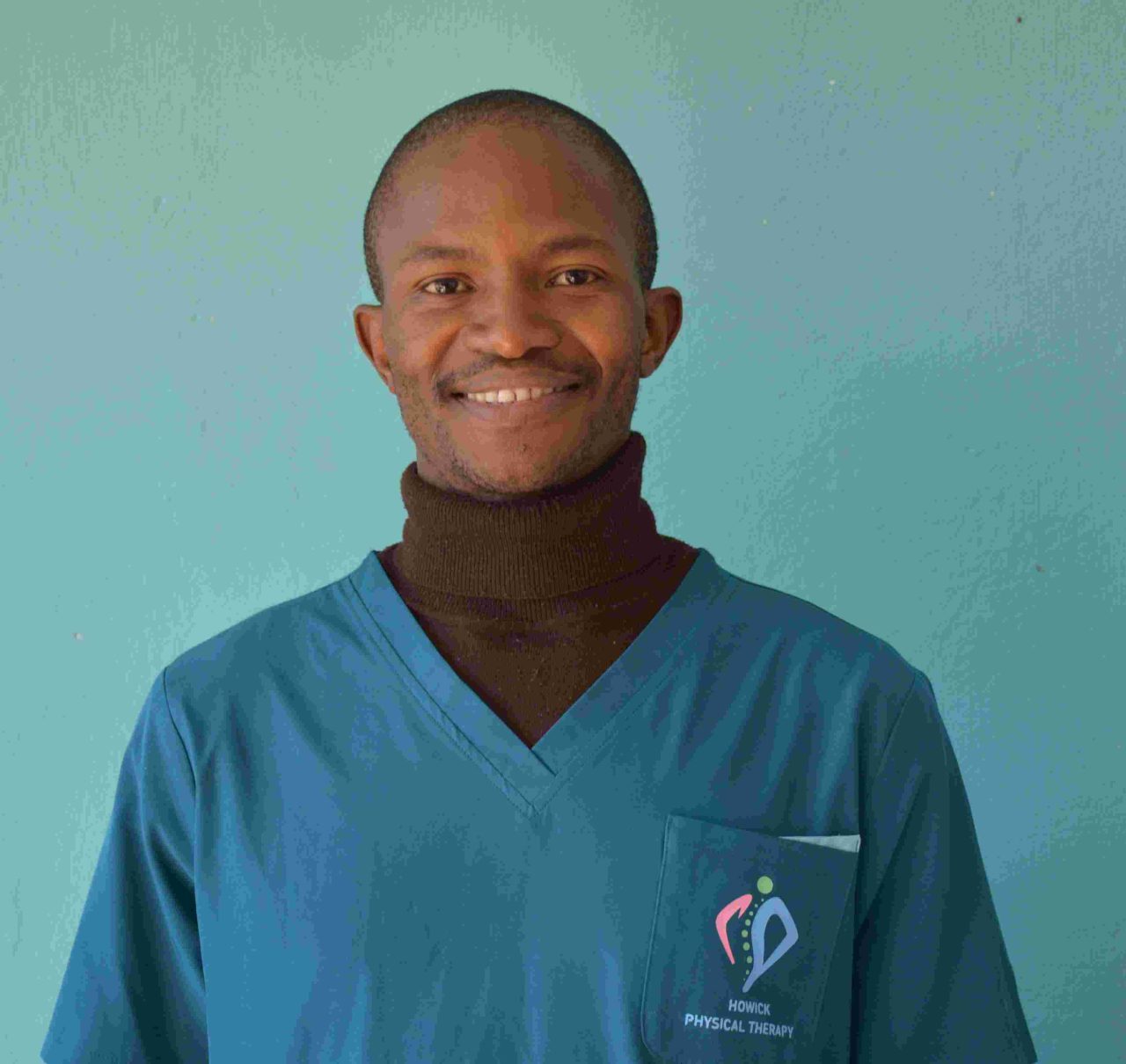The Midlands community is proud of its talented members who all contribute their expertise, and one such individual is Sabelo Xaba, who has gone from strength to strength in building his practice as a Physical Therapist and finding his way as a Zulu man. Read more about how he finds meaning within healing.
Sabelo has always been a gentle soul, the peacemaker amongst his peers. “My father had a calm demeanour, there was no shouting in our family. Issues were dealt with quietly,” he recalls. Growing up, Sabelo remembers his dad regularly sitting his children down and asking them what their dreams were. “I thought I would like to become a lawyer, but my dad discouraged me from that.”
 During high school, Sabelo was a keen rugby player and needed treatments for his own back pain. This early exposure and first-hand experience with physical therapies, including craniosacral therapy, massage, and chiropractic care, sparked his interest in the field. Knowing the impact back pain has on one’s quality of life, he was clear about the career he would follow, buoyed by the support of his family.
During high school, Sabelo was a keen rugby player and needed treatments for his own back pain. This early exposure and first-hand experience with physical therapies, including craniosacral therapy, massage, and chiropractic care, sparked his interest in the field. Knowing the impact back pain has on one’s quality of life, he was clear about the career he would follow, buoyed by the support of his family.
Young Zulu boys usually know how to skin an animal. Sabelo Xaba remembers when he was about 12-years-old, participating in the slaughtering of a goat at a ritual to welcome ancestors. “It is an important rite of passage when you stop being an observer (like when I was nine at my father’s funeral) and are given a specific task to perform,” he remembers. However, when faced with dissecting a human cadaver while studying Chiropractic at DUT, Sabelo had a moment of panic but noticed that everyone else looked comfortable and relaxed. “One girl was so chilled, eating her sandwich,” he laughed. “Once I got started though, I found that it was a similar system to the animals, and I was fascinated.” Sabelo loves to work with his hands (rather than writing or drawing), so the dissection class soon became his favourite.
After five years of study, while enrolled in the Master’s Programme in Chiropractic, Sabelo felt he needed to take a break and focus on his music. Unfortunately, he was not able to return and complete his degree.
During the last eight years, Sabelo had run exercise classes for My Home Gym in Pinetown, spent two and a half years with Discovery Health as a pre-authorisations consultant and kept on studying. He enrolled with the Healing Hands Institute to learn other modalities, utilise his knowledge, and be able to enter private practice as a physical therapist. “While music is a vital part of my life and I won’t stop making music, my focus has now shifted firmly back to healing. I am enjoying the journey, learning new things all the time,” he shared.
A couple of years ago, Sabelo saw an opportunity with the National Youth Development Agency to apply for funding for his fledgling massage therapy business. The administrators were impressed by his vision and business plan and the fact that he was practising voluntarily in his community already. He was awarded a small sponsorship to put towards equipment—a portable massage table, electrotherapy, and a massage machine. “I think I stood out from everyone applying to start tuck shops or hair salons, so I believed success was within my reach.” This boost has enabled Sabelo to work with confidence. He is part of the collective of practitioners based at The House @ 9 in Howick.
Over the last couple of years, he has also treated patients at the Mpophomeni Pharmacy on Mandela Drive and Dr Dube’s practice in Mpendle, introducing rural folk to the benefits of physical and massage therapy. “People from rural areas have often engaged in hard physical labour for most of their lives, and their bodies have taken real strain without access to treatment. It makes me very happy to see a patient who has suffered from knee and back pain for a long time stand up straight and walk easily again,” Sabelo says with a wide smile.

Sabelo firmly believes that a therapist’s role is to initiate the healing process, which constitutes 20% of the work. The remaining 80% depends on the patient’s adherence to corrective actions in their daily lives to prevent further injury and facilitate healing. Annie Waterhouse comments, “My journey from a total hip replacement to a long haul flight in just seven weeks could not have been done without the healing hands and personalised exercise regime of Sabelo.”
In 2024, Sabelo acknowledged some of the healing work he needed to do for himself: “I feel more grounded, more creative, more focused, have a clearer vision, and truly feel like a healer.” He relishes being part of isibaya samadoda—a space for men to discuss their life experiences, culture, and ancestral practise. “We talk about how our forefathers observed patterns, thought deeply and how most social rules were based on natural rhythms and cycles. There is a lot of value in these conversations, helping us to understand why, as Black men, we don’t relate to many modern things.”
Nowadays, the only dissecting Sabelo does is of his own journey. “I am enjoying this process of introspection—examining myself, my community, and our society. Helping others and finding meaningful ways to contribute to healing the world around me.”
Facebook: Howick Massage Therapy
